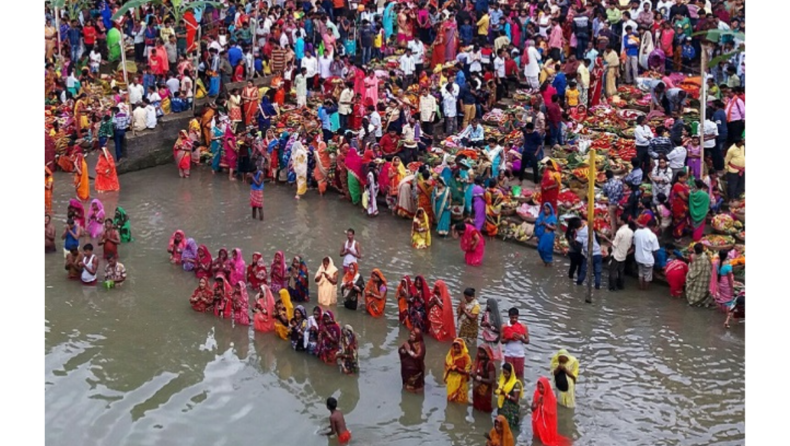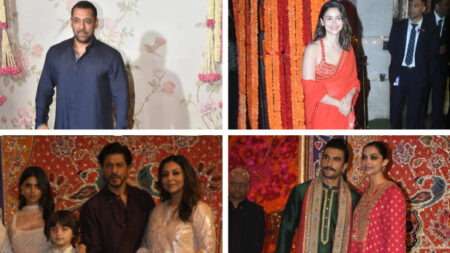India is the most traditionally diverse and culturally vast nation and is the birthplace of many religions, including Hinduism, Buddhism, Jainism, Sikhism, etc. Cultural festivities and the values, beliefs and religious norms play an essential role in people’s lives here.
However, since the onset of the pandemic in 2019, the government has been posing several restrictions in the movement of people, goods and services nationally and internationally, thereby following a uniform code of conduct to maintain “social distancing” and prevent the spread of the very contagious Corona Virus (COVID-19).
With the significant rise in the number of cases of covid all across India, the government took strict measures to curb social gatherings and promote in-house stay leading to the government imposing lockdowns and curfews.
The year 2021 brought another wave of a pandemic resulting in an even worse outbreak. With festivals like Holi, Navratri and Diwali passed, now was the time for one of the biggest celebrations of the year, the Chhath Pooja.
This festival is celebrated mainly across Bihar, eastern UP, Jharkhand, the southern part of Nepal and some parts of other central-northern states. This year the festive dates fell between 8th November to 11th November.
The government feared the four-day celebration becoming a source of covid transmission and the onset of the third wave.
Let’s have a look at how the event unfolded across India.
How various states planned on allowing celebrations of Chhath amid the covid crisis?
Many states have employed officials and volunteers at ghats to ensure that people do not take baths in the waterbed in clusters as it increases the risk of transmission of the virus.
Since the festival usually witnesses massive congregations, some states have even banned the public gatherings at the river of ghat sites for Chhath Pooja celebrations.
UTTAR PRADESH: The Yogi Adityanath government has issued an advisory for Chhath pooja celebrations in the coronavirus pandemic and has urged the devotees to perform the rituals within or near their homes only.
They also suggested following social distance norms and ensuring good health services at hand.
BIHAR: Every year, Bihar witnesses the grandest Chhath pooja celebrations as the festival holds quite a significance for the Biharis.
Here the government issued guidelines for authorities to clean some lakes and demarcate specific areas where the celebration must occur. The government has urged devotees to follow all norms of social distancing, especially while offering ‘argha’ to the Sun.
Food stalls and decorative lights at public places have not been allowed. Devotees are being discouraged from sitting at riverbanks during Chhath rituals.
JHARKHAND: Out of the four days of celebration, the state banned the first two days and finally allowed devotees to perform rituals for the next two days.
Chief Minister Hemant Soren, however, urged the devotees to maintain the code of conduct and avoid congregations by staying at home for the safety of everyone.
DELHI: No Chhath Puja rituals will be allowed at public places in the national capital like riverbanks and ponds.
Amid the third wave of the coronavirus pandemic, the Delhi High Court on Wednesday refused to lift the ban on the same, saying a person has to be alive to celebrate any festival.’
The Delhi Disaster Management Authority (DDMA) has already issued an order in this regard. Mumbai and Odisha have taken similar steps to curb the spread.
While the government has taken all the necessary steps and precautions to curb the spread of the deadly coronavirus so far, now it is up to the people how seriously they follow and abide by the norms and regulations set by the government.
As a responsible citizen, it should be of the utmost priority for an individual to ensure your that they do not become the source of transmission and must follow all the guidelines of wearing masks, maintaining social distancing and not gathering or making clusters at public places to keep themselves and the people around them safe.
Life of a festival goer in 2020 has seen a dramatic twist with COVID-19 as the diabolical nemesis. All the exciting festivals that one would look forward to in 2021 can no longer be experienced this year, as public gatherings could only worsen the spread of the virus.
The impact of the pandemic has been quite saddening as all the fun and frolic that come with India’s celebrations would not happen. Some of its consequences have been positive, but some have also been a little negative that we cannot deny.













